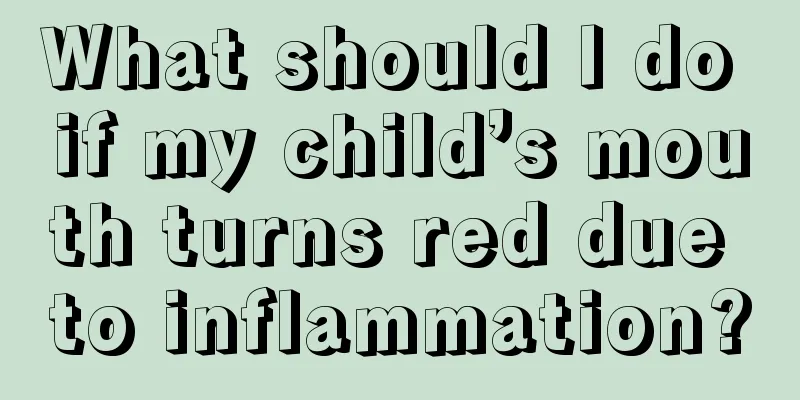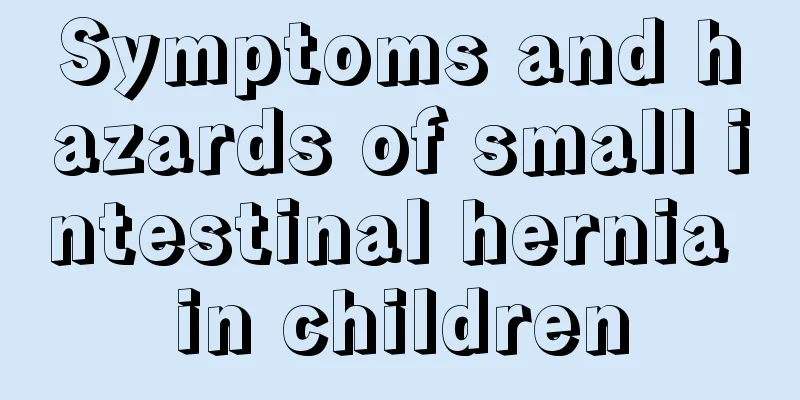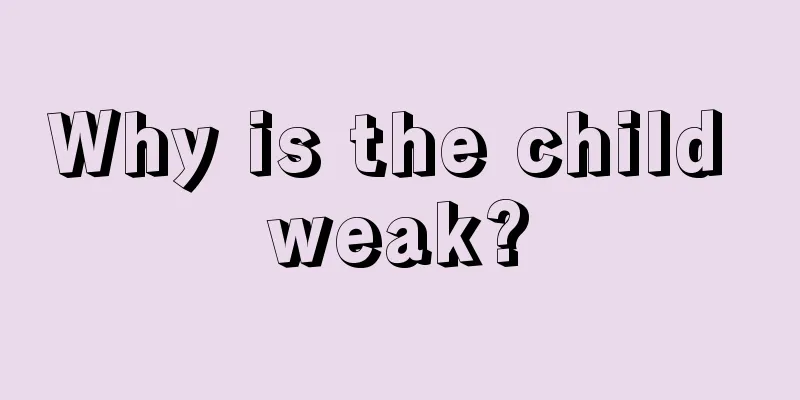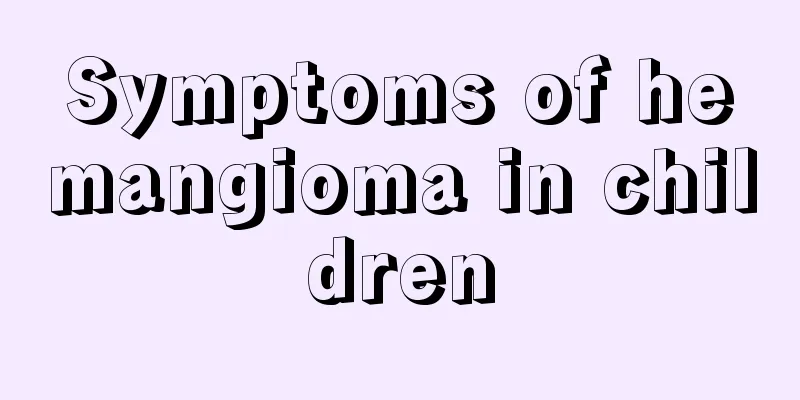What to eat when a child has a fever
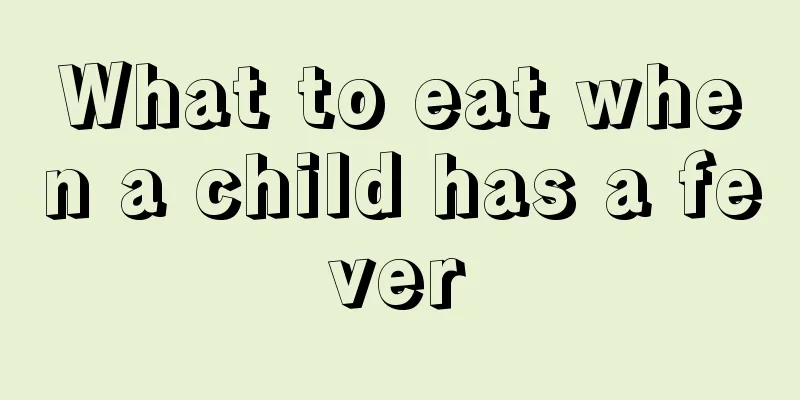
|
What should a child eat when he has a fever? When faced with such a problem, every parent wants to try their best to feed the child something good and nutritious, and they wish they could let the child eat the best things. Here I would like to advise anxious parents to first understand the cause of their child's fever, and then give their children appropriate food based on the cause. This will make their child's body more comfortable and also have a certain auxiliary effect in reducing fever. When a child has a fever, first take him to the hospital for a check-up to see what is causing the fever. The doctor will prescribe some symptomatic medications or injections for treatment. At this time, parents should consider making some food suitable for the child's physical condition. Only when the child can eat the food will the body have resistance to fight against germs and make the body get better faster. When children have a fever, they will feel very uncomfortable and have less appetite. They should be fed mainly liquid and semi-liquid foods that are easier to digest and absorb. Here is a brief introduction to some foods. Common liquid foods include: 1. Milk Milk can provide children with a certain amount of protein, and adding an appropriate amount of rice soup can provide some carbohydrates. 2. Rice Soup Rice soup can provide children with carbohydrates, and it has sufficient water content, making it easier for sick children to absorb it through their stomachs. Boil the rice until it is soft and remove the residue to get rice soup. 3. Mung Bean Soup Mung beans are benign and have the effects of clearing away heat, detoxifying and relieving summer heat. 4. Fresh juice In summer, you can drink watermelon juice, which has the effects of clearing away heat, quenching thirst, and diuresis. In autumn and winter, you can drink fresh pear juice, which has the effects of moistening the lungs, clearing the heart, relieving cough, and removing phlegm. Fresh orange juice has the effects of removing dampness, resolving phlegm, clearing the lungs, and dredging the meridians. Fresh pear juice has the effects of clearing heat, moistening the lungs and relieving cough. It is suitable for babies with fever and cough. Fresh apple juice contains a lot of vitamin C, which can not only supplement the baby's nutritional needs, but also neutralize toxins in the baby's body. After a child has a fever for a few days, he or she often does not want to eat. Parents will become very worried and ask the child to eat more after the fever subsides. Common semi-liquid foods include porridge, eggs, and soft noodles. Children should not eat more eggs when they have a fever After a child has a fever, he or she usually has a poor appetite. At this time, he or she should eat liquid, nutritious, light, and easily digestible food, such as milk, lotus root powder, and vegetable soup with less oil. When the body temperature drops and appetite improves, you can change to semi-liquid food, such as minced meat and vegetable porridge, noodles, soft rice with some easily digestible dishes. In addition, drink more warm water to increase the moisture in the body's tissues, which has a stabilizing effect on body temperature and can prevent the body temperature from rising rapidly again. When a child has a fever, many parents think that they should supplement their nutrition, so they feed their children a lot of protein-rich eggs. In fact, this not only fails to lower the body temperature, but increases the heat in the body, causing the baby's body temperature to rise, which is not conducive to the child's early recovery. A few simple ways to reduce fever (1) Most babies have fevers because of catching a cold. If the baby has cold hands and feet, white tongue coating, pale face, and light urine, parents can use ginger and brown sugar water to dispel the cold. Adding two or three one-inch long pieces of green onion to the water will help the baby sweat. (2) If the baby has a fever, sore throat, yellow tongue coating, and yellow urine with a strong odor, it means that the child has a severe internal heat. At this time, the baby should not drink ginger and sugar water, but should drink a lot of warm water. You can also add a small amount of salt to the water. Note: Liquid food is generally consumed during the acute phase of illness, and semi-liquid food is consumed during the recovery phase or fever-reducing phase. If a child with a fever has a poor appetite, do not force him to eat, so as to avoid stomach discomfort and vomiting after eating, but be sure to pay attention to replenishing water. In addition, do not suddenly add food that the child has not eaten before during the fever period to avoid diarrhea. When a child has a fever, he or she must seek medical attention in a timely manner, with medication as the main treatment. However, parents must also pay attention to the child's diet. They must not eat greasy food, especially for children who can eat by themselves and prefer to eat meat. Parents should try to change the way their children like their food and make it lighter. In addition, some physical cooling methods, such as wiping the body with a wet towel, can help the child recover from fever faster. |
<<: How to enhance your baby's immunity
>>: What to do if your child has a stuffy nose
Recommend
What are the pros and cons of children taking Lego classes?
Everything has two sides, that is to say, there a...
Why does my child have bad breath in the morning?
Don’t think that bad breath only occurs in adults...
Does roseola infantum cause diarrhea?
Many children in their early childhood have very ...
What is the reason why babies can't sleep well at night?
Sleep is important for both adults and children. ...
Is it okay for boys to drink soy milk?
Soy milk is a very popular drink because it has h...
Why is my eight-month-old baby restless when sleeping at night?
If you don't sleep well at night, the harm ca...
What should I do if my child has allergic conjunctivitis?
Children are very prone to allergic symptoms. The...
Why is my baby's stomach rumbling?
A child's digestive ability is very limited, ...
Newborn crawling training
When babies are five or six months old, their bod...
The child walks with his left foot turned inward
In life, many children have different postures wh...
What are the symptoms of children with congenital heart disease?
Congenital heart disease will affect and threaten...
What to do if your child keeps crying at night
Children are the treasures of every family. Moreo...
How to care for neonatal allergic eczema
Everyone is familiar with neonatal allergic eczem...
What is the correct way to correct baby's nail biting?
In life, some babies like to bite their nails no ...
What to do if a nine-year-old child vomits
Nine years old is a child. At this time, the chil...
